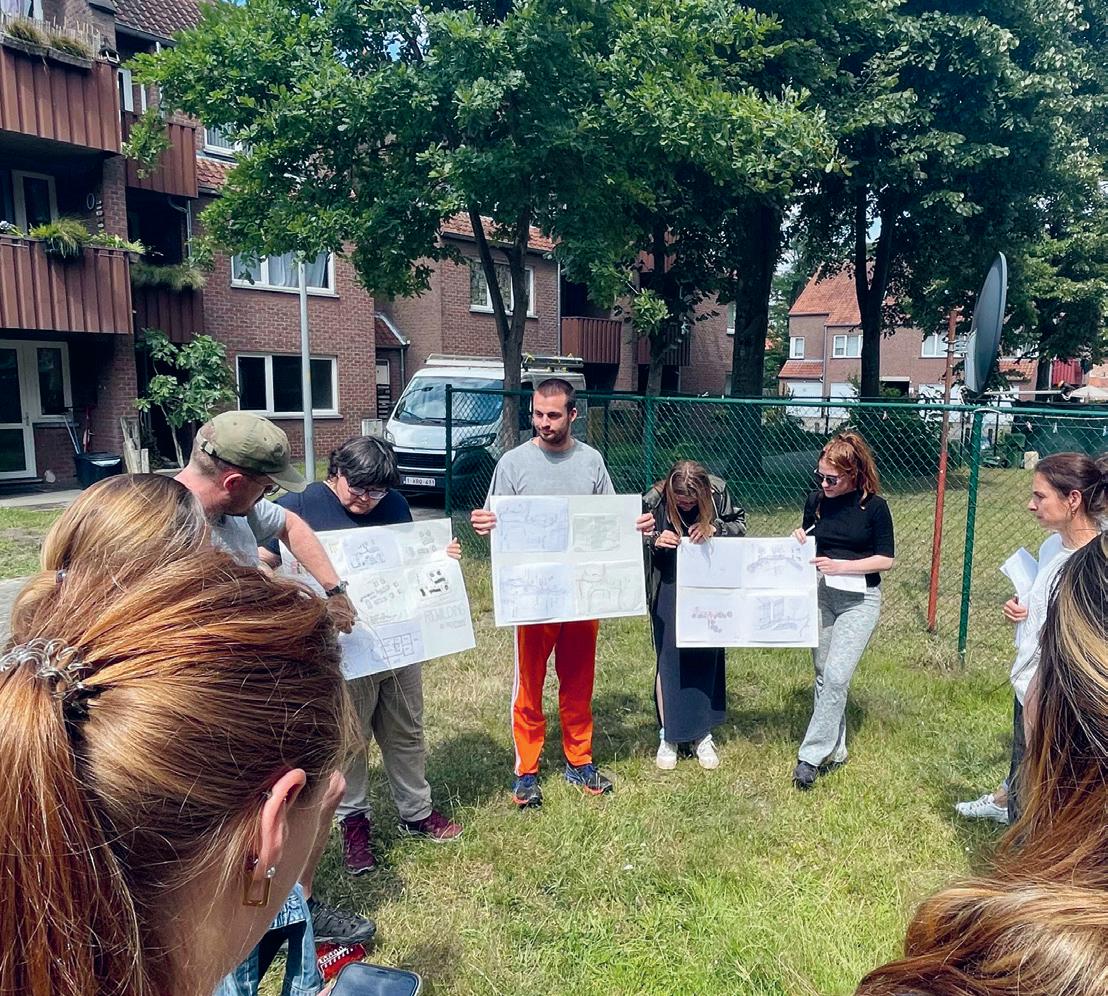1 minute read
VALUING IN PRACTICE
As designers we are invested in the “materiality” we design: buildings, streets, bricks, maps, technologies. However, in times of immense socio-ecological challenges, designers are increasingly confronted with polarisation around the sustainable futures they envision that do not always entail adding materiality, but also taking it away. As we demonstrated via the Live Project at Arck, UHasselt, often designers, policy makers and other professionals separate our world into those who care for, for example, sustainable building, mobility or water and those who do not care, even enhancing these polarising tendencies. There is thus a need to design beyond opposition, but for relations between worlds and world views around these futures. In our research we explore how to design for “careful” relations between actors whose worlds, projects – and thus also how they consider the things we design – seem opposed to each other, such as a daily need for a feeling of home and shelter in our society versus an ecological need to build less. During a Live Project, as Participatory Designers – inspired by the work of Annemarie Mol – we explored a design process as a process of “valuing in practice”, negotiating various world-making projects and ways of valuing the world and reconnecting these in new patchworks. This caring approach to design is also what we discuss in the book we launched recently Re-framing the politics of Design (Huybrechts, Devisch & Tassinari, 2022).










